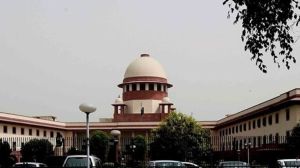MEA focus: Decision on attending Ukraine meet, G-7 concerns
In 2014, Modi had invited Sharif for the swearing-in ceremony, but the rapprochement process was derailed after the series of attacks in Pathankot and Uri
 Jaishankar, who has been a career diplomat for more than three decades, will have at least three things that will need his immediate attention. (File Photo)
Jaishankar, who has been a career diplomat for more than three decades, will have at least three things that will need his immediate attention. (File Photo)External Affairs Minister S Jaishankar, who has been the face of India’s assertive foreign policy, continues as the minister for the second term.
Jaishankar, who has been a career diplomat for more than three decades, will have at least three things that will need his immediate attention.
First, India needs to take a call on its attendance at the Swiss-hosted conference of peace on June 15-16 for the Russia-Ukraine war. Since Ukraine initiated the conference and Russia is not participating in it, it is being presumed that India will not participate at the highest level, at the level of the Prime Minister. But, whether it will be at the level of the Indian ambassador or a Secretary-rank official from the MEA, will have to be seen.
Second, India’s participation at the G7 summit, which is being hosted by Italy on June 13-15. Italian Prime Minister Meloni has already invited Prime Minister Modi for the summit, and it is expected that the Indian PM will be headed to the summit. India, which has not been part of the G7, has been invited as a guest country since 2019, when France hosted the summit in Biarritz. Jaishankar, who may also travel to Italy, will have to work on India’s statement of priorities and concerns that will be delivered by the PM.
Third, Pakistan’s outreach in the last few months since the Nawaz Sharif-led PMLN party has come to power in March this year, with Shehbaz Sharif as the PM. The comments by the Sharifs are an olive branch being extended at the highest level from Islamabad.
In 2014, Modi had invited Sharif for the swearing-in ceremony, but the rapprochement process was derailed after the series of attacks in Pathankot and Uri. It will be up to the new government and the Prime Minister to respond to any gesture of peace.







